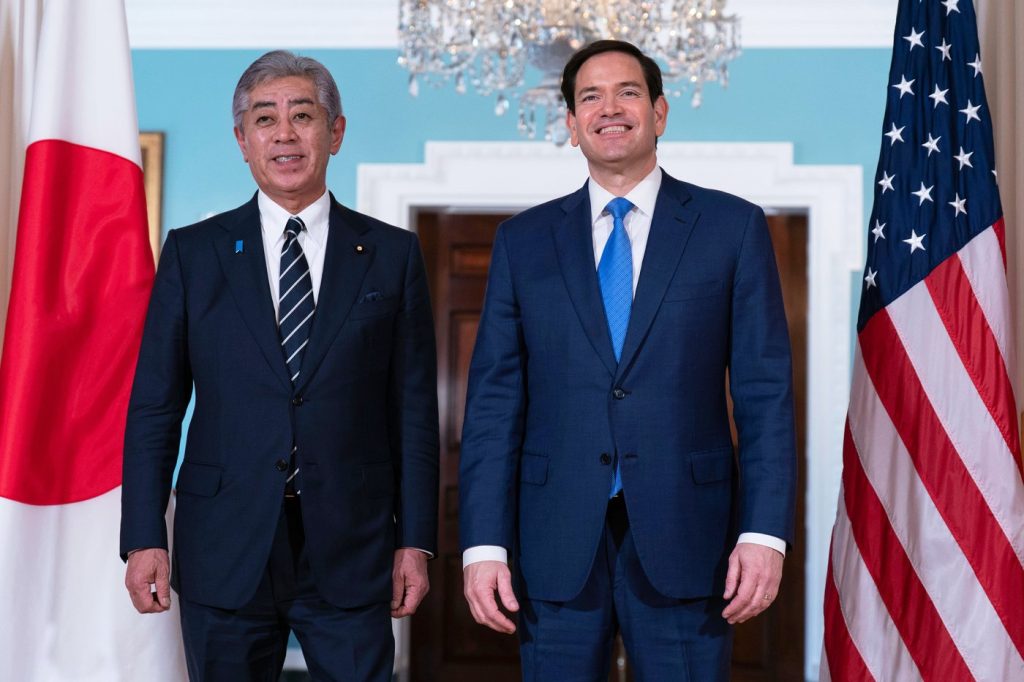WASHINGTON — Sweeping tariffs set to be imposed by President Donald Trump next month are poised to overshadow his Secretary of State's first official trip to Asia this week. This comes at a time when the U.S. aims to strengthen relations with Indo-Pacific nations to counter China's growing influence in the region. Trump's move to introduce higher tariffs, including for several Asian countries, has raised concerns among U.S. allies.
On Monday, Trump sent a notice to multiple nations indicating that they would face increased tariffs unless new trade deals are reached with the U.S. This action coincided with Secretary of State Marco Rubio's plans to depart for a Southeast Asian regional security conference in Malaysia, scheduled for later this week.
Top diplomats and senior officials from at least eight countries targeted by these tariffs will participate in the Association of Southeast Asian Nations (ASEAN) Regional Forum in Kuala Lumpur, which Rubio will attend on Thursday and Friday. The anticipated tariffs are due to take effect on August 1, with major countries like Japan and South Korea being particularly impacted, facing a proposed 25% tariff unless agreements are made.
Despite the looming tariff issue, State Department officials assert that Rubio's discussions will not prioritize tariffs, focusing instead on maritime safety, security in the South China Sea, and combating transnational crime. However, analysts are skeptical that Rubio will successfully sidestep discussions on tariffs that have frustrated relationships with key allies.
According to Danny Russel, vice president of the Asia Society Policy Institute and a former assistant secretary of state, Rubio's messages regarding the threat posed by China might not resonate with Asian leaders experiencing the effects of high tariffs on their industries. Recent comments from Malaysian Prime Minister Anwar Ibrahim underscored that ASEAN is increasingly concerned about U.S. tariffs, framing them as a significant challenge.
Currently, Trump has announced tariffs as high as 40% affecting at least six out of the ten ASEAN member states, including the host nation Malaysia. Malaysia is expected to face a 25% tariff primarily targeting electronics and electrical products entering the U.S. Notably, Southeast Asian countries such as Brunei, the Philippines, Singapore, and Vietnam remain unscathed by the tariffs thus far. The Trump administration has been actively courting Southeast Asian nations to mitigate the influence of China in the region.
In Kuala Lumpur, Rubio will likely encounter the foreign ministers of China and Russia, two of America's most significant adversaries. U.S. officials remain uncertain if there will be planned meetings with either minister during Rubio's brief stay, which will last approximately 36 hours.
Russel highlighted that Chinese Foreign Minister Wang Yi is well-versed in ASEAN norms, making him a strategic player during international gatherings. In contrast, Rubio's "America First" message may not be well received by a "deeply skeptical audience." This skepticism is also contextualized by ongoing issues with Russia, particularly related to the situation in Ukraine.
Recently, Trump expressed frustration with Russian President Vladimir Putin amid escalating Russian military actions in Ukraine. As part of his administration's policies, Trump announced the resumption of U.S. defensive weapon support for Ukraine following a brief cessation of certain deliveries in the previous week. U.S. officials continue to accuse China of supplying Russia and bolstering its military capabilities, enabling further aggression against Ukraine.










